- Category
- War in Ukraine
A Look into the Dystopian Realities of Abducted Ukrainian Children
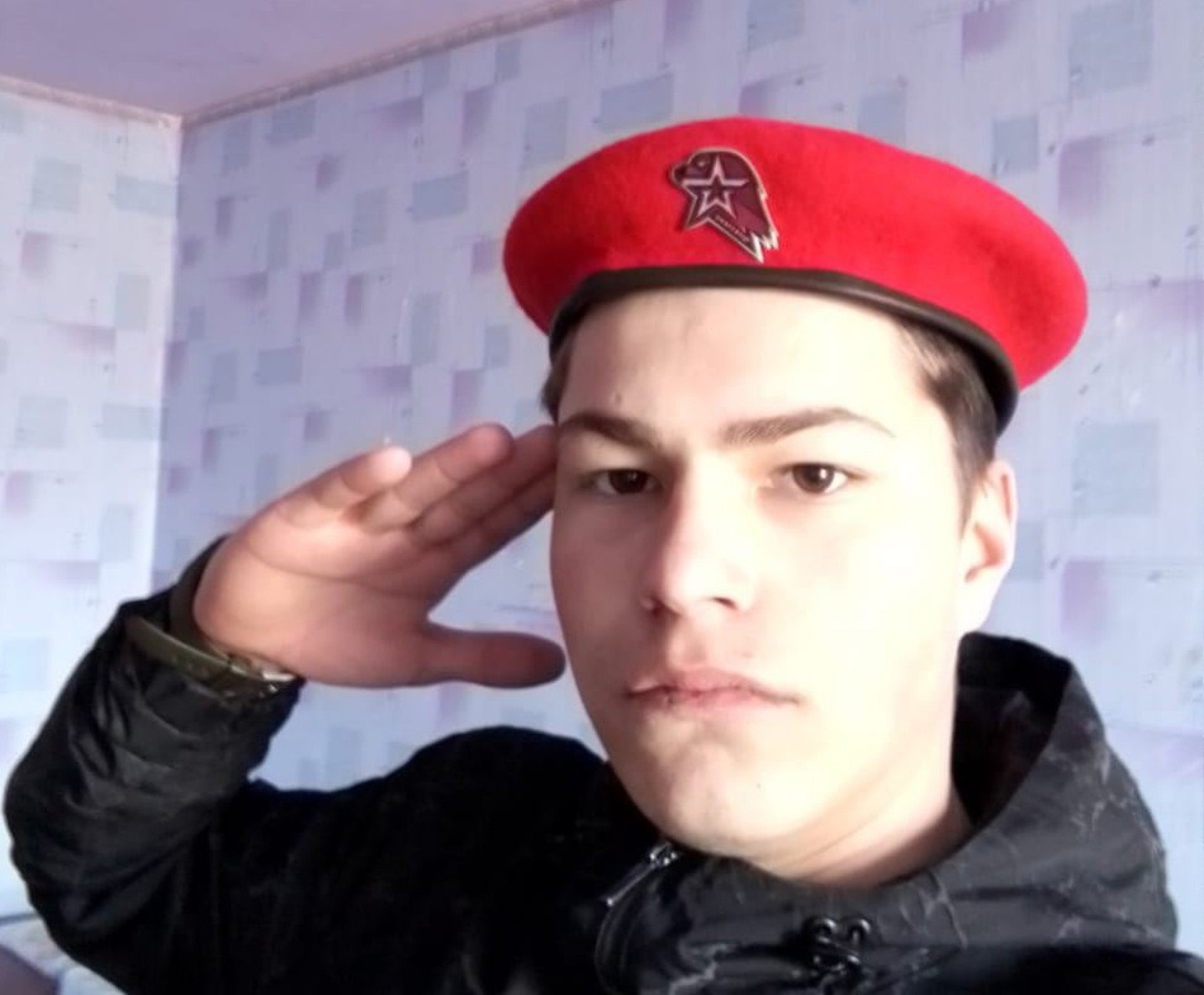
Russia is indoctrinating illegally deported Ukrainian children and putting them under strict digital control. Today we uncover the great lengths the Kremlin is taking to brainwash Ukrainian children into embracing their Russian world.
The kidnapping of Ukrainian children by Russian occupiers is being done, with no effort to conceal their actions. Russia openly claims that they are “confident” they can “re-educate” forcibly relocated Ukrainian children, “erase their Ukrainian past, and integrate them into the Russian world.” In return, children who resist this forced Russian identity are subjected to mass surveillance.
Russia attempts to justify the illegal deportation of Ukrainian children on humanitarian grounds, but if children are being taken to Russia for their “safety,” why are they forced to adopt Russianism? Today we look at one outspoken pro-Ukrainian teenager who became a victim of Russian indoctrination and how the Kremlin implements their “Russian world” while going to great lengths to achieve it.
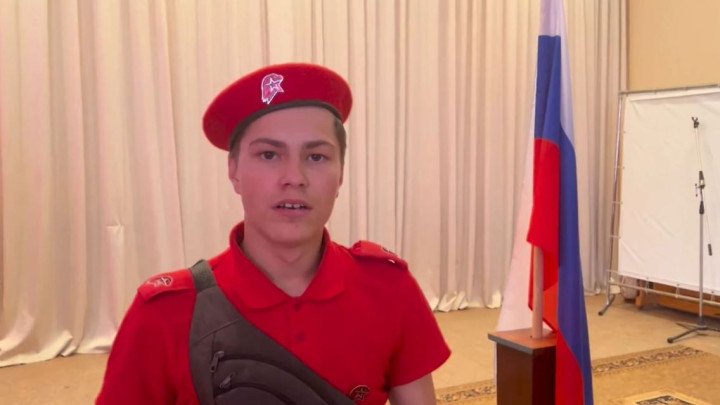
From Ukrainian resistance to victim of Russian propaganda
Denys Kostev was taken from occupied Kherson in 2022. Before his forced deportation, then 16, Denys was a prominent supporter of Ukraine’s resistance. He posted videos on TikTok praising Ukrainian forces, cursing Vladimir Putin, and, according to his half-brother, Maksym, was glued to Ukrainian news, listened to anti-Russian rap songs, and even had a sticker on his phone that said, “Putin is a dickhead.”
However, just a few months after being forcibly removed, he appeared on Kremlin-controlled propaganda channels praising Russia and expressing his devotion to the country. Denys was an orphan and one of the thousands of unlawfully kidnapped and relocated Ukrainian children to areas under Russian control.
The exact number of children forcibly displaced is unknown. Ukrainian authorities claim that the number is around 19,500 children, though the United Nations hasn’t been able to verify the figure yet.
Denys was taken to a camp in Crimea for a “break from war,” where his indoctrination began. The Druzhba camp housed around 2,000 Ukrainian children that Moscow said it transferred from Ukraine. "Every morning began with the Russian national anthem, and every week the children had to listen to ‘conversations about important things,’ featuring a fictional history of Russia in which Kherson was always Russian, and the Russians were its liberators," said Mykola Kuleba, former Presidential Commissioner for Children's Rights.
When Kherson was liberated, Denys was not allowed to return home and was moved to another camp. Denys was seen on various Russian state-run channels in the months and years following. In one video, he was draped in a Russian flag and was heard saying, “I want to serve in the army,” and “I’m ready to serve the Russian Federation.”
Save Ukraine, an NGO organizing rescue missions for Ukrainian children from Russia, was working to retrieve Denys, but he refused, cut all ties with them and all of his Ukrainian relatives, changed his phone number, and was continuously seen promoting Russian propaganda in several videos.
After months of silence, Denys finally got back in touch, and Save Ukraine worked on his escape from Russia. That’s when his long journey, exclusively documented by the Wall Street Journal, began. After leaving Russia, for several months, Denys still recalled Russian narratives, claiming that the Bucha massacre was fake news spread by Ukraine.
“He’s a classic example of what Russians can do to a still-developing child who has no one to defend him,” said Olha Yerokhina, a Save Ukraine spokeswoman who helped Denys. “They know he has a way with words, and that he’d speak about his time in Russia.” She questioned whether Denys even escaped or whether Russia let him go to spread their narrative.
Save Ukraine claims that it has taken Denys five months since his escape to return to his true self after his intense manipulation by Russia.
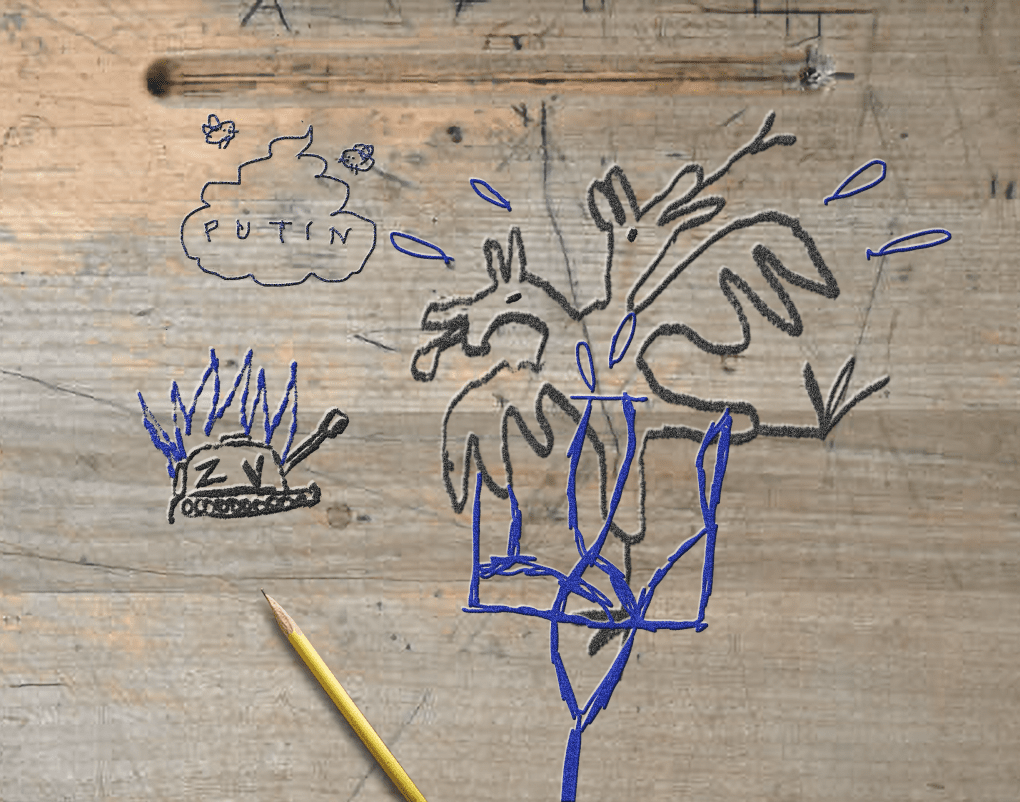
How is indoctrination implemented?
A dictionary and a manual called “Prevention of Conflicts, Manifestations of Extremism and Terrorism in a Multicultural Educational Environment” were compiled in 2022 by the Kremlin. The Russian Ministry of Education provides these to school teachers, which they must follow in the classroom, setting a dangerous precedent.
The dictionary highlights what the Kremlin claims are words and slogans Ukrainian children might use “containing signs of extremism on nationalist grounds” such as:
"Glory to Ukraine! Glory to heroes!” which they list as a “nationalistic greeting.”
“Rashism” is the unofficial name of the political ideology and social practice of the ruling regime of Russia; Russophobes invented the term.
“Orcs” are used by Russophobes and extremists to derogate Russian military personnel.
The manual states that even discussing “political topics” could lead to widespread “destructive ideology,” according to a source from the Russian Ministry of Education who spoke to Meduza, a Latvia-based Russian media outlet. The manual and the dictionary do not explain in detail what this “ideology” or “extremism” is exactly, but simply being from Ukraine fits this narrative. This already ostracizes Ukrainian children and their culture.
A harrowing investigation by Meduza highlights the indoctrination of illegally deported Ukrainian children conducted by Russia at a governmental level, from their arrival in Russia and occupied territories right through to graduation. Meduza studied hundreds of leaked documents and conducted anonymous interviews with those working within the Russian Education Ministry.
The report explains that Ukrainian children fear they will be “stigmatized because of their pronounced dialect” and experience “the difficulty of quickly switching to Russian.” Their fear cements their need for rapid learning due to potential repercussions. The Constitution states that Russian is a state language: if you come to Russia, you must speak Russian.
The Kremlin claims it’s working on integration, but true integration should appreciate cultural diversity and be based on acceptance. However, it is well known that showing any kind of respect for the Ukrainian language, coat of arms, or national anthem can lead to imprisonment. A Russian student was jailed after naming their Wi-Fi router “Glory to Ukraine,” a pro-Ukrainian slogan.
An anonymous source who has closely worked with these manuals refuted their content, stating they are “fierce rubbish.”
“Integration of these children is impossible. Rather, we are talking about assimilation or marginalization,” the source told Meduza.
The report shows that the system convinces children that their parents are not only “potential terrorists” but have either died or will never return for them. Many of these children come from socially vulnerable backgrounds; some are orphans, and some are placed in foster homes. “We are losing these children. Many of them will never come back because they are growing up with this poison, with this horrible propaganda; they are very vulnerable to it,” Mykola Kuleba said.
“Many of us were abandoned by our guardians, abandoned by foster parents during the war… and then the Russians come in and act hypocritically, offering warmth and pretending that they care, and these children see this and think, well, this is better than it was there (in Ukraine),” Bohdan Yermokhin, a Ukrainian teenager who was deported to Russia, said.
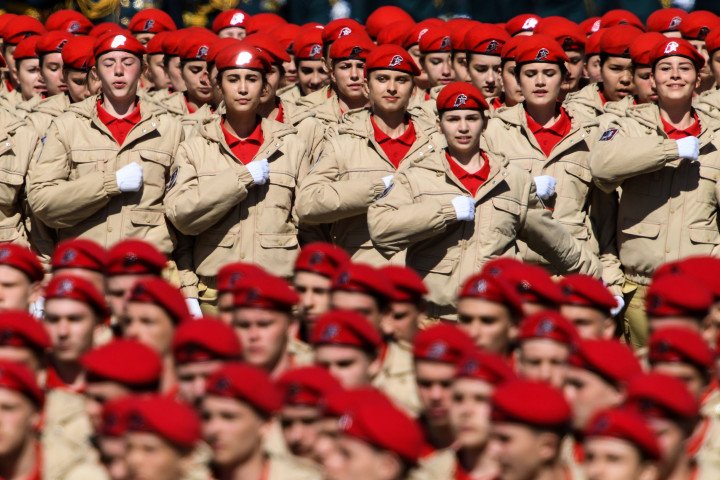
The Kremlin’s patriotic youth movement and militarization of children
The Kremlin, through several programs, has focused efforts on pro-government, patriotic, and military movements for youth.
Yunarmia (National Military Patriotic Social Movement Association) was founded in 2015 and promotes militarization among children. Their website presents itself as a Boy and Girl Scout movement, stating that it is joined voluntarily. However, Ukrainian children in occupied territories have claimed they fear reprisal if they don’t join.
“Movement of the First,” a state-sponsored youth movement promoting Russian ideology, was created in accordance with federal law in 2022.
A Ukrainian boy taken from Mariupol was sent to a Russian patriotic camp in Moscow. He was given a Russian passport, and not long after his 18th birthday, he received a summons from the Russian military recruitment office, CNN reported.
Ukraine’s human rights commissioner Dmytro Lubinets said his office is convinced that Russia’s efforts to turn Ukrainian teenagers deported to Russia into soldiers is part of a broader drive by Putin to erase Ukrainian identity.
Russia opened the “Federal Centre for the Development of Adolescent Socialization Programs (FC RPSP)” “especially for Ukrainian children” - to explain to them “where the truth is.” The program first targeted children from occupied Mariupol and children in the self-proclaimed LPR (Luhansk Peoples Republic), where “they distributed humanitarian aid, conducted training, and created an image of a friendly Russia,” a source told Meduza.
Two weeks after the full-scale invasion began in 2022, the “Teenagers of Russia” program started, an initiative of children's rights commissioner Maria Lvova-Belova created to aid “millions of teenagers passing through the turbulence of war.”
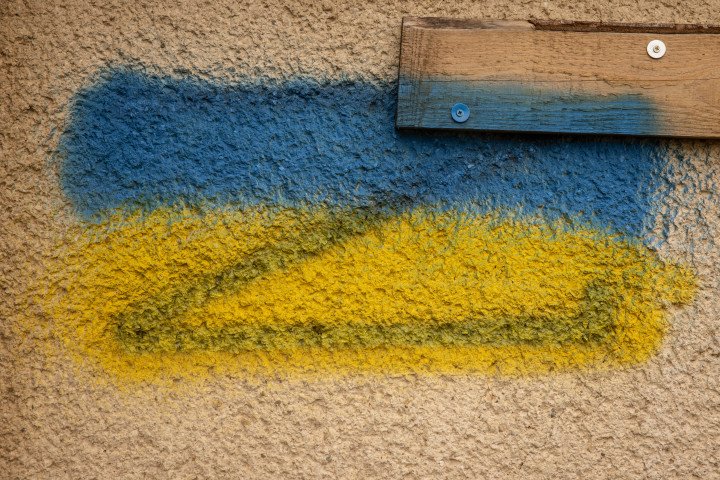
Mass surveillance on child “terrorists”
The Russian Education Ministry claims that they carry out “preventative work” regarding suicides with support from the Centre for the Study and Network Monitoring of the Youth Environment (ANO CISM); however, their work goes far beyond prevention.
ANO CISM has developed its internet monitoring software called, automated information system (AIS) to monitor what they call “the spread of the ideology of armed violence,” “anarchism,” “Nazism,” and “other types of destructive information,” Meduza claims. AIS has surveillance on over 540 million profiles in real-time and considers that 2 million of them demonstrate “destructive behavior.”
Profiles are created for each child, including photos, an address, phone number, and detailed analysis of their social networks, right down to collating data on comments, likes, and reposts. Even if the profile is using a different name and photo, changing their age, and blocking their family, the center can still identify them.
A student in the occupied Luhansk region was imprisoned for the “organization of the activities of a terrorist group” just for liking a pro-Ukrainian social media post, reports claim.
According to Meduza’s report, this system already covers the profiles of “at least 85%” of children living in occupied territory.
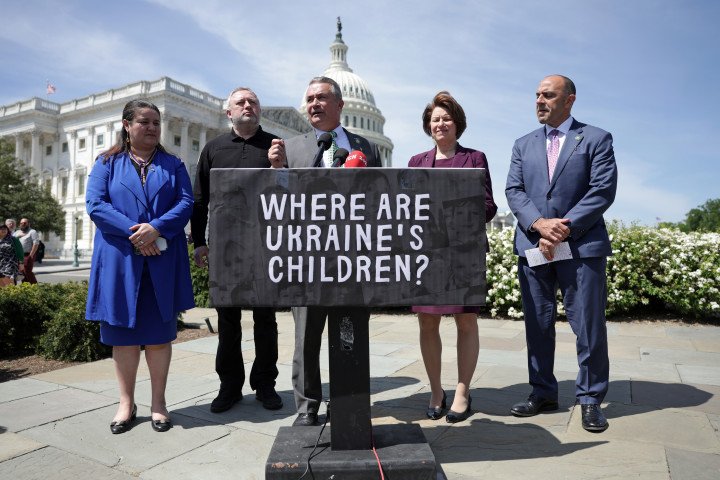
Illegal forceful deportation of Ukrainian children
Yale University mapped the deportation system and found that Russia’s efforts to deport and re-educate Ukrainian children are “systematic, widespread, and pre-planned.” Investigations by Europol are continuously ongoing and have recently located missing Ukrainian children using open-source techniques.
Investigations by Europol are continuously ongoing and have recently located missing Ukrainian children using open-source techniques.
KibOrg conducted an investigation and gained access to the ‘state’ database, “Children of Donbas,” which contains information on children abducted by Russia and those involved.
Maria Lvova-Belova claims that children were “evacuated” from dangerous areas and cannot be adopted so that children can be returned to their families. However, the International Criminal Courts in The Hague, along with countless other investigations, have proven these claims to be false. Many children have not only been deported, by Russia’s admission but have also been given up for adoption.
Vladimir Putin and Lvova-Belova were issued arrest warrants by the International Criminal Courts in The Hague in March 2023. Both warrants are based on reasonable grounds that they are both “allegedly responsible for the war crime of unlawful deportation of children.”
The Kremlin's continuous argument that they moved the children to safety and will return them to Ukraine is exposed as nonsense by investigators. The Russian state is working at unfathomable levels to wipe the Ukrainian language and culture from deported Ukrainian children, branding them as terrorists and keeping extreme surveillance on their online movements.
Currently, there is no diplomatic or legal route to have these children returned, and entering Russian territory to retrieve the children is very difficult and dangerous. Often, family members or NGOs like Save Ukraine must undertake this perilous journey themselves, at their own risk of captivity.
The International Coalition for the Return of Ukrainian Children, co-headed by Ukraine and Canada, was launched in February of this year and now includes 28 countries. The Coalition aims to identify the locations of illegally deported and forcibly displaced young Ukrainians and develop mechanisms for their return. It will participate in relevant diplomatic negotiations and issue all necessary documents. This, the Ukrainian government hopes, will open up legal and safe pathways for these children to return home.
-46f6afa2f66d31ff3df8ea1a8f5524ec.jpg)

-35249c104385ca158fb62273fbd31476.jpg)


-554f0711f15a880af68b2550a739eee4.jpg)



-206008aed5f329e86c52788e3e423f23.jpg)